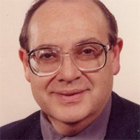The London Safety Camera Partnership is dominated by bureaucrats, has no constitution and holds meetings in secret On Wednesday the London assembly member Victoria Borwick will, on my behalf, put a series of questions to the mayor, Boris Johnson, relating to the present plight of the London Safety Camera Partnership, a road safety initiative designed to reduce speeding and the number of vehicles running red lights in the capital. The LSCP is a curious entity. It has no written constitution. Why not? The LSCP has not met since January. Why not? We are told that the LSCP is now in financial crisis, and may be "mothballed". Would this matter? There are now 38 SCPs, covering most police force areas. Until April 2007, local SCPs received a proportion of the income from fines generated by traffic-enforcement cameras, but the well-founded suspicion that the cameras were being used primarily for revenue-raising purposes led the government to abandon this method of funding. Nowadays all local authorities with a responsibility for road safety receive an annual road safety grant not related to the number of penalty notices issued. The enforcement of traffic laws is primarily the responsibility of the police. So why the need for a "partnership"? Ostensibly the creation of SCPs (a decade ago) was seen as the rectification of a democratic deficit. Traffic enforcement cameras are not popular with motorists, the vast majority of whom see themselves as – and are in fact – law-abiding citizens. The root cause of motorists' dislike of speed cameras is that they resent the interference with their judgment that the cameras impose. And they suspect – still – that the primary purpose of the camera is to raise revenue. The creation of the SCPs was seen at the time as a way of deflecting criticism of this type by formalising links between the police and local authorities in respect of the location and operation of safety cameras. The history of the London partnership suggests that this has not been a success. The LSCP is a secretive body. Take a look at its minutes (available at its website). Many of the most important items are deleted, hidden from public view – for example financial performance monitoring (September 2007), poor quality of camera data (November 2007) and strategic planning (March 2008). LSCP meetings are not open to the public – though no official to whom I have spoken can quote any legislative or regulatory backing for this ban, which is not surprising since the LSCP has never had a constitution. During 2008 there was a concerted effort by local councillors in London to obtain representation on the LSCP, but this was comprehensively thwarted. One elected councillor attends LSCP meetings but has had to sign the Official Secrets Act as a condition of attendance. In practice, the work of the LSCP is dominated not by the police but by unelected officials from Transport for London. These bureaucrats are no doubt passionate about their work but they (inevitably) bring prejudices to it – mainly a conviction that motorists are predisposed to break the law and are the sole authors of their own misfortunes. But are they? To talk to TfL you would think that traffic-enforcement cameras are infallible, and that their technology is perfect. Well, they're not and it isn't. No technology is perfect. There are a number of well-publicised instances of cameras giving false readings. What would you do if you received a Notice of Intended Prosecution alleging that you had been snapped by a camera driving over the legal speed limit? The first thing you should do is to demand sight of the relevant calibration certificate. To their credit, a number of SCPs actually post these on their websites. But not the LSCP. Privately TfL admits that traffic-enforcement cameras can malfunction, but it is adamant that it is not going to advertise the fact, and points instead to the new generation of average-speed cameras whose readings they insist are irrefutable. Well, they aren't. For instance, a minute misalignment of the gantry on which banks of average-speed cameras are mounted can result in the transmission of compromised data. The LSCP is presently in a state of financial crisis. TfL has had to cut its annual budget from £5.8m to £3m for 2009-10. So there will have to be a much more focused prioritisation in its work. Earlier this year Swindon became the first English local authority to scrap all its fixed speed cameras – it will divert the money saved thereby to road safety awareness schemes and friendly, vehicle-activated signs, while Wiltshire police will continue to operate mobile units. Is it too much to expect TfL to do the sensible thing and follow suit?Speed cameras – the bigger picture
Tuesday, 17 November 2009
Posted by
Britannia Radio
at
20:55
![]()






















